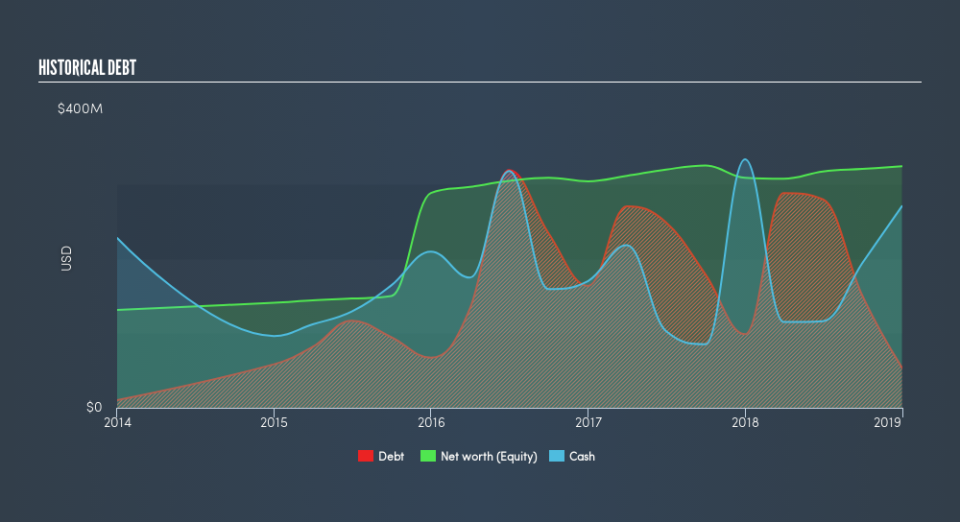What You Should Know About Atlantic Capital Bancshares, Inc.’s (NASDAQ:ACBI) Risks

The banking sector has been experiencing growth as a result of improving credit quality from post-GFC recovery. Economic growth impacts the stability of salaries and interest rate level which in turn affects borrowers’ demand for, and ability to repay, their loans. As a small-cap bank with a market capitalisation of US$450m, Atlantic Capital Bancshares, Inc.’s (NASDAQ:ACBI) profit and value are directly affected by economic activity. Risk associate with repayment is measured by the level of bad debt which is an expense written off Atlantic Capital Bancshares’s bottom line. Today we will analyse Atlantic Capital Bancshares’s level of bad debt and liabilities in order to understand the risk involved with investing in the bank.
Check out our latest analysis for Atlantic Capital Bancshares
How Good Is Atlantic Capital Bancshares At Forecasting Its Risks?
The ability for Atlantic Capital Bancshares to accurately forecast and provision for its bad loans shows it has a strong understanding of the level of risk it is taking on. If the level of provisioning covers 100% or more of the actual bad debt expense the bank writes off, then the bank may be relatively accurate and prudent in its bad debt provisioning. Given its large non-performing loan allowance to non-performing loan ratio of 344.88%, Atlantic Capital Bancshares over-provisioned by 244.88% above the minimum, indicating the bank may perhaps be too cautious with their expectation of bad debt.
How Much Risk Is Too Much?
If Atlantic Capital Bancshares does not engage in overly risky lending practices, it is considered to be in relatively better financial shape. Ideally, loans that are “bad” and cannot be recuperated by the bank should comprise less than 3% of its total loans. When these loans are not repaid, they are written off as expenses which come directly out of the bank’s profit. The bank's bad debt only makes up a very small 0.30% to total debt which suggests the bank either has strict risk management - or its loans haven't started going bad yet.
How Big Is Atlantic Capital Bancshares’s Safety Net?


Atlantic Capital Bancshares makes money by lending out its various forms of borrowings. Deposits from customers tend to bear the lowest risk given the relatively stable amount available and interest rate. Generally, the higher level of deposits a bank retains, the less risky it is deemed to be. Atlantic Capital Bancshares’s total deposit level of 74% of its total liabilities is within the sensible margin for for financial institutions which generally has a ratio of 50%. This indicates a prudent level of the bank's safer form of borrowing and a prudent level of risk.
Next Steps:
The recent acquisition is expected to bring more opportunities for ACBI, which in turn should lead to stronger growth. I would stay up-to-date on how this decision will affect the future of the business in terms of earnings growth and financial health. I’ve bookmarked ACBI’s company page on Simply Wall St to stay informed with changes in outlook and valuation. This is also the source of data for this article. The three main sections I’d recommend you check out are:
Future Outlook: What are well-informed industry analysts predicting for ACBI’s future growth? Take a look at our free research report of analyst consensus for ACBI’s outlook.
Valuation: What is ACBI worth today? Has the future growth potential already been factored into the price? The intrinsic value infographic in our free research report helps visualize whether ACBI is currently mispriced by the market.
Other High-Performing Stocks: Are there other stocks that provide better prospects with proven track records? Explore our free list of these great stocks here.
We aim to bring you long-term focused research analysis driven by fundamental data. Note that our analysis may not factor in the latest price-sensitive company announcements or qualitative material.
If you spot an error that warrants correction, please contact the editor at editorial-team@simplywallst.com. This article by Simply Wall St is general in nature. It does not constitute a recommendation to buy or sell any stock, and does not take account of your objectives, or your financial situation. Simply Wall St has no position in the stocks mentioned. Thank you for reading.

